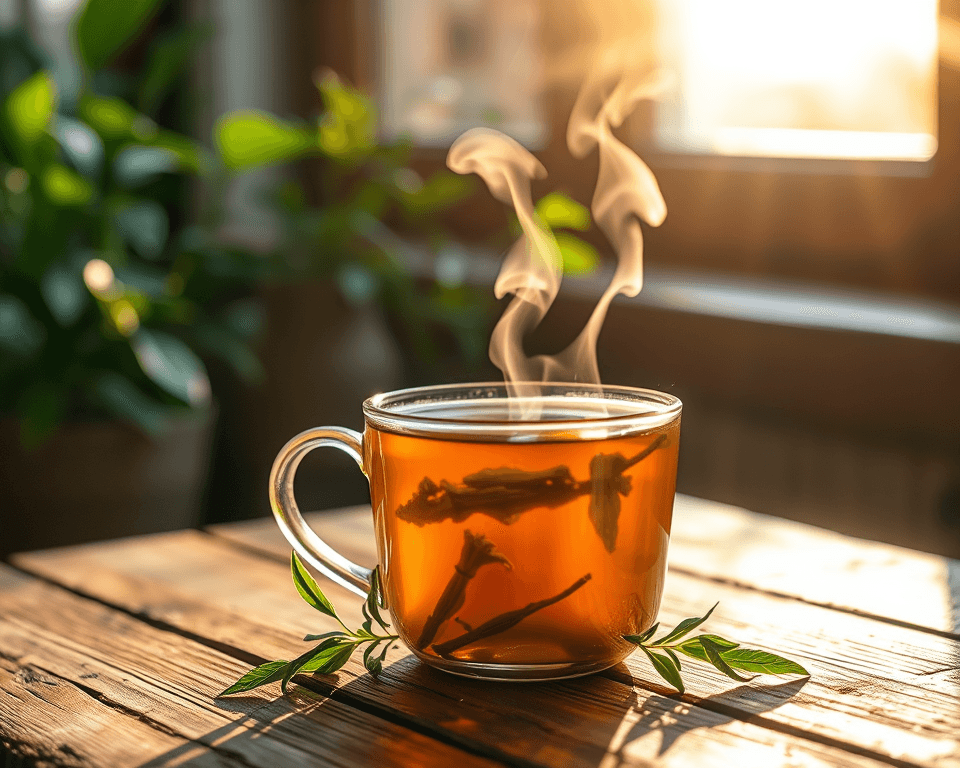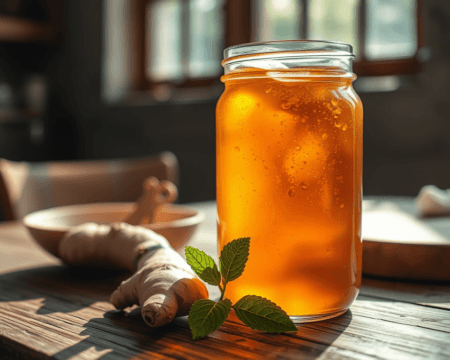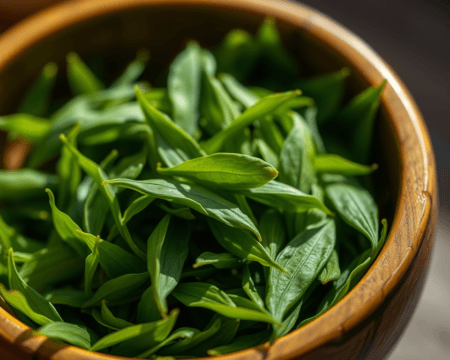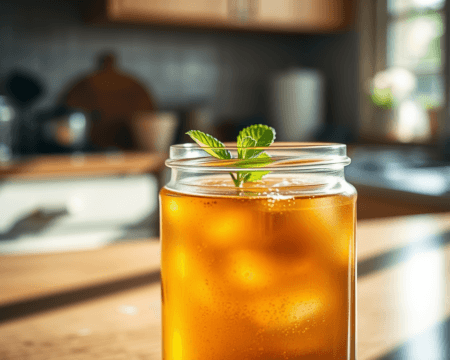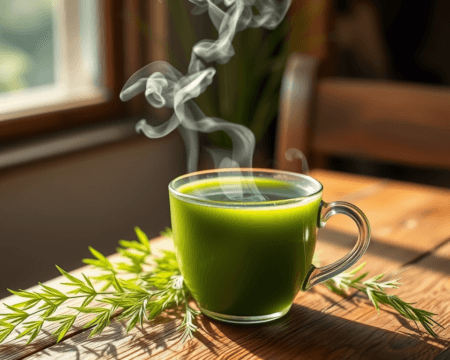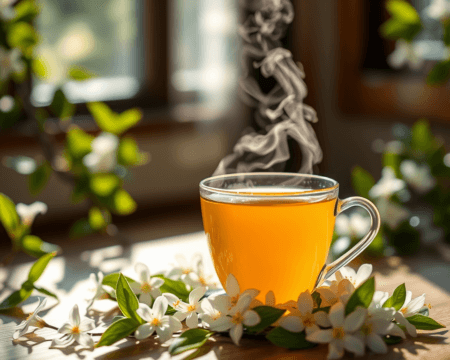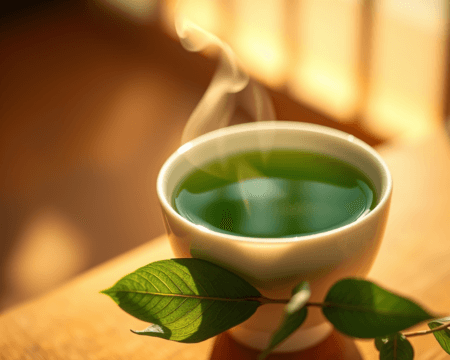Sinus congestion can feel like you’re stuck in a cloud—with each breath a struggle and that annoying pressure hanging around like an unwanted guest. If you’ve ever woken up feeling like your head is full of cotton balls, you’re not alone. I’ve been there too. The good news? There’s a world of herbal teas out there packed with natural remedies to clear your sinuses without the hassle of chemicals or over-the-counter drugs. Let me share how you can grab your favorite mug and brew your way to relief.
Key Takeaways
- Herbal teas can be effective for relieving sinus congestion, with each variety offering unique properties.
- Peppermint and eucalyptus teas provide immediate comfort and decongestant action.
- Ginger and thyme add anti-inflammatory benefits, helping to reduce overall sinus pressure.
- Always consider allergies and interactions with medications when exploring herbal remedies.
Understanding Sinus Congestion and the Role of Tea
What is Sinus Congestion?
Sinus congestion, also known as nasal blockage, happens when there’s inflammation around your sinuses—those hollow spaces in your skull that help with air circulation and drain mucus. When they get inflamed due to colds, allergies, or infections like sinusitis, you might feel pressure building up or have trouble breathing through your nose. And let’s not forget about the sneezing and those pesky headaches that can accompany sinusitis symptoms. Trust me, it doesn’t just feel miserable; it can really throw off your entire day.
Several elements contribute to sinus congestion, including excess mucus production, allergens, or even pollutants that find their way into our systems. Once these triggers spark inflammation, prepare for a bumpy, uncomfortable ride.
How Tea Helps Alleviate Sinus Symptoms
Now, here’s where things get interesting: tea. Herbal remedies are a fantastic way to tackle sinus issues because many teas boast soothing effects and anti-inflammatory agents. You might be asking, How does tea make a difference? Great question! Different types of tea have unique compounds that act like nature’s own decongestant. Say goodbye to feeling stuffed up and hello to easy breathing! Each brew packs its own punch, helping to open up those nasal passages and calm your body.
Best Teas for Sinus Congestion Relief
Let’s kick off with some tried-and-true tea blends that can work wonders on your nasal woes.
Peppermint Tea
Peppermint tea is an absolute powerhouse when it comes to sinus relief. This isn’t just your average herbal flavor; menthol, the key ingredient in peppermint, provides a cooling sensation that helps clear the airways. There’s a reason we turn to peppermint when we want to feel fresh!
Here’s how to brew it:
– Use loose leaf peppermint or a tea bag.
– Steep in hot water for about 5-10 minutes.
– Add a touch of honey for sweetness since its soothing properties can help calm throats that get irritated from coughing.
Inhaling the steam while drinking can also expand your airways, providing extra respiratory ease. Just imagine that relaxing aroma wafting through your nostrils, freeing you from sinus pressure!
Ginger Tea
Ginger tea isn’t just about that spicy kick; it’s a fantastic anti-inflammatory ally. Ginger offers numerous health benefits, making it perfect for those like me who battle regular colds or sinus congestion.
To brew:
– Grate fresh ginger (about a tablespoon) and steep it in boiling water for around 10 minutes.
– Enjoy a drizzle of lemon juice to kick the flavor up a notch.
With ginger’s warming effects on your body, it soothes your sinuses while supporting your immune system. It’s exactly what you need when you’re feeling sluggish.
Thyme Tea
Thyme might conjure up thoughts of cozy meals, but it’s more than just a culinary herb. This little gem is packed with antibacterial properties that can give your sinus health a significant boost.
To make thyme tea:
– Use fresh thyme sprigs or dried thyme leaves.
– Steep it like you would regular tea for about 5-7 minutes.
Thyme’s herbal aroma is delightful, and it doubles as a respiratory aid by encouraging proper airflow—perfect for those annoying times when your sinuses are acting up.
Eucalyptus Tea
When it comes to sinus relief, eucalyptus is no slouch either! With its potent aroma, this herb does wonders for respiratory support. It acts as a natural decongestant, helping to soothe irritated sinuses effectively.
Here’s how to prepare it:
– Use dried eucalyptus leaves or tea bags.
– Allow it to steep in hot water for about 7 minutes.
Not only does eucalyptus help relieve congestion, but it can also be enjoyed as a steam inhalation. Just inhale that clear, crisp aroma and feel the tension release!
Chamomile Tea
Let’s not forget chamomile, the herbal heavyweight known for its calming effects. While it’s often touted as a sleep aid, this tea can also help your sinuses by reducing inflammation.
Brewing chamomile tea:
– Use chamomile flowers or bags and steep for around 5-8 minutes.
– The soothing aroma will help ease your mind while it works on that sinus pressure.
Whether you enjoy it before bed or during a congested afternoon, chamomile is a delightful addition to your sinus relief toolkit.
Brewing and Enjoying Your Sinus Relief Teas
Brewing Techniques for Maximum Benefits
The key to unlocking all those herbal benefits lies in how you brew your tea. We’re talking about steeping time and temperature control—this isn’t just boiling water and dumping in a bag! You want the good stuff to be extracted properly.
Here’s the lowdown:
– Start with fresh, clean water—avoid nasty tap water that might mess up the flavor.
– If you’re using dried herbs, a general rule of thumb is to steep them in 190-205°F water.
– For maximum extraction, aim for a steeping time of at least 5 minutes.
Use a tea strainer for loose leaf options, and you’ll amp up the herbal extraction! Trust me; your sinuses will thank you.
Suggested Pairing and Serving Ideas
Want to take your tea experience to the next level? Consider pairing your herbal brews with ingredients like honey or lemon juice. Not only does that add flavor, but honey also serves as a soothing agent for your throat. Some folks even throw in a pinch of cayenne pepper for a little kick!
When you’re serving these teas, make it inviting. Sip them warm or over ice—whatever floats your boat! Feeling adventurous? Mix and match teas to create your personalized herbal blends—get creative and find what works best for you.
Considerations and Potential Side Effects
Possible Allergies and Sensitivities
Before you dive headfirst into herbal tea land, it’s crucial to consider any personal allergies or sensitivities. Not all herbs sit well with everyone. If you’re known to react to chamomile, for example, it’s probably best to avoid it altogether.
You should keep the following points in mind:
– If you’re trying a new tea, start small and monitor your body’s reaction.
– Common herbal reactions include skin irritation or, in rare cases, more serious allergic responses.
Always prioritize personalizing your herbal experiences.
Interactions with Medications
Now, if you’re on medications, let’s take a minute here. Some herbs can interact with various drugs, so it’s a good idea to consult with your healthcare provider if you have any doubts. This isn’t to scare you—it’s just about keeping things safe and sound. You don’t want your soothing cup of tea to end up as a health hazard.
For instance, ginger can thin your blood and might interact with blood thinners. Always make informed decisions about what you’re sipping on!
The world of herbals is vast, and while we can grab many benefits from these types of teas, noting their effects on medications can help steer clear of potential problems.
With all that said, you’ve got the knowledge you need to take on sinus congestion headfirst. Brew those teas, enjoy the soothing aromas, and embrace your sinus relief journey.
Frequently Asked Questions
What are the benefits of herbal teas for sinus congestion?
Herbal teas can effectively relieve sinus congestion due to their natural decongestant properties. Many herbal ingredients, such as peppermint, eucalyptus, and ginger, not only clear nasal passages but also provide anti-inflammatory benefits, reducing overall sinus pressure and discomfort.
How should herbal teas be prepared for sinus relief?
To prepare herbal teas for sinus relief, steep 1-2 teaspoons of dried herbs or a tea bag in a cup of hot water for 5-10 minutes. Strain and sip slowly. Adding honey or lemon can enhance flavor and provide additional soothing effects.
Are there any side effects of herbal teas for sinus problems?
While generally safe, some herbal teas may have side effects or interact with medications. Peppermint and eucalyptus can cause allergic reactions in some people. Always consult a healthcare professional before trying new herbal remedies, especially if you have underlying health issues.
Which herbal tea is the best for sinus congestion?
Peppermint and eucalyptus teas are among the best options for immediate sinus relief. However, ginger and thyme also offer considerable anti-inflammatory properties that can help reduce sinus pressure over time. The best choice may vary based on personal preference and sensitivity.
Can I combine different herbal teas for better results?
Yes, combining different herbal teas can enhance their effectiveness. For instance, mixing peppermint and ginger can provide both immediate relief and anti-inflammatory benefits. Just be cautious about the quantities and ensure no allergies to the herbs used.
How frequently can I drink herbal teas for sinus relief?
There are no hard and fast rules, but most people can safely drink 2-3 cups of herbal tea per day. It’s essential to listen to your body and monitor any reactions. If you experience discomfort or side effects, reduce your intake or seek advice from a health professional.
Can children drink herbal teas for sinus issues?
Some herbal teas may be safe for children, but it’s best to consult a pediatrician first. Mild options like chamomile or peppermint are usually safer, but always ensure the specific herbal tea is appropriate for your child’s age and health condition.
Are there specific herbal teas to avoid if I have allergies?
Yes, individuals with allergic reactions should avoid herbal teas containing ingredients they are allergic to. Always read labels carefully and consult with a healthcare provider regarding potential allergens in herbal teas to avoid adverse reactions.
Is there any scientific evidence supporting the use of herbal teas for sinus relief?
While many people report relief from using herbal teas, scientific studies on their effectiveness specifically for sinus congestion can be limited. However, some components of these herbs, like menthol in peppermint, do have documented decongestant properties, lending some credibility to their use.




